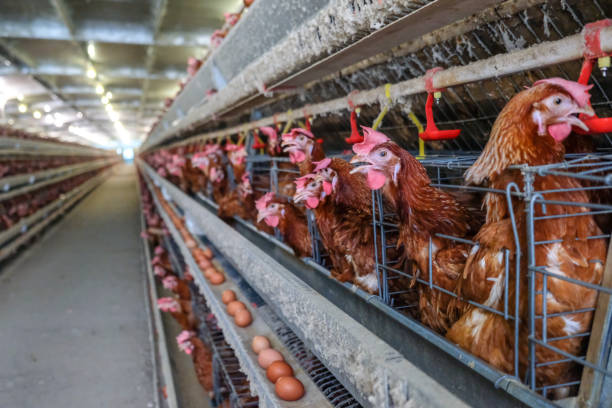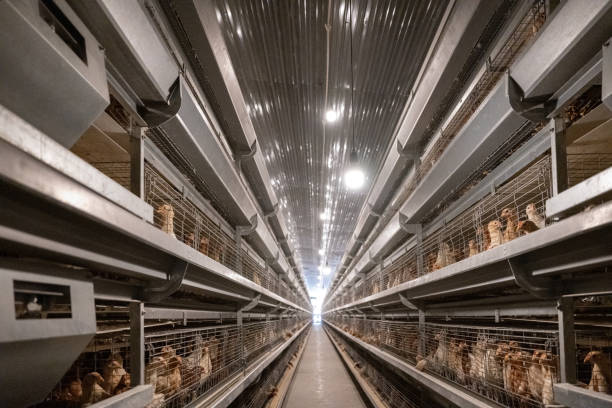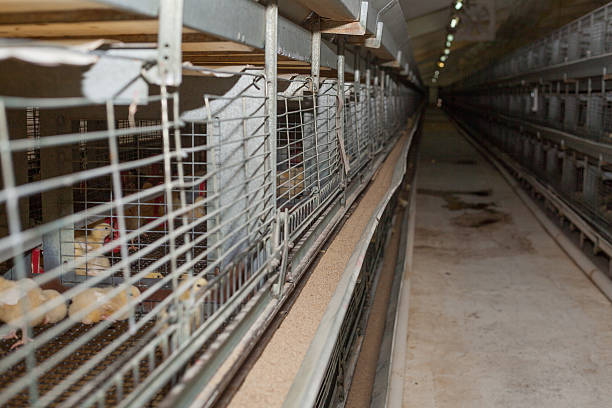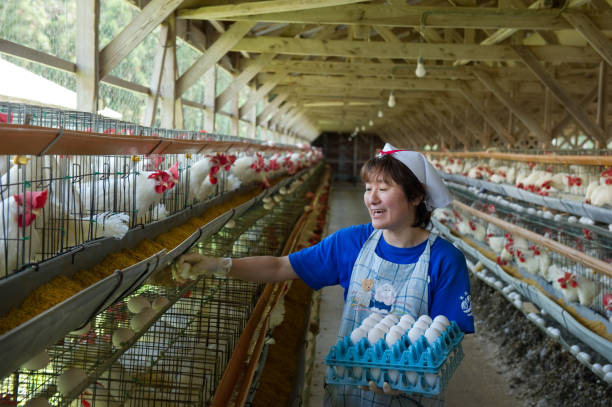
Sustainable Poultry Cage Systems for Modern Farms
Sustainable Poultry Cage Systems for Modern Farms
In today’s rapidly evolving agricultural landscape, sustainability is no longer just a buzzword—it’s a necessity. For modern poultry farms aiming to balance productivity with environmental responsibility, sustainable poultry cage systems are becoming the cornerstone of ethical and efficient farming. At Zhengzhou Livi Machinery Manufacturing Co., Ltd., we’ve been at the forefront of designing and manufacturing eco-friendly, durable, and smart poultry equipment since 2012. Our mission has always been clear: help farmers worldwide achieve higher efficiency while reducing environmental impact. In this article, we’ll explore what makes a poultry cage system truly sustainable, why it matters for your farm, and how upgrading to modern solutions can future-proof your operation.
What Makes a Poultry Cage System Sustainable?

When we talk about “sustainability” in poultry farming, it goes far beyond using recycled materials or saving a bit of water. A truly sustainable poultry cage system is one that optimizes resources, improves animal welfare, reduces waste, and supports long-term profitability—all without compromising on output. At Livi, we believe sustainability is built on four pillars: durability, energy efficiency, animal health, and smarter design.
First, durability means less frequent replacement and reduced waste. Our cages are made from high-quality galvanized steel and undergo strict anti-corrosion treatment. This ensures they last over 15 years even under intensive use, drastically cutting down on metal waste and resource consumption. Unlike cheaper alternatives that rust within a few seasons, our systems maintain integrity through extreme temperatures and moisture—common challenges in large-scale poultry houses.
Second, energy efficiency comes into play with integrated ventilation, automated feeding, and manure removal systems. For example, our automated manure belt systems not only keep the coop cleaner but also reduce ammonia buildup, which lowers the need for constant air exchange—and thus saves energy on cooling and heating. By minimizing energy demand, farms can cut operational costs and carbon footprint simultaneously.
Then there’s animal health. Sustainable farming starts with healthy birds. Our cage designs offer optimal space distribution, improved airflow, and better access to feed and water. This reduces stress, prevents disease outbreaks, and cuts down on antibiotic reliance—a key demand from consumers and regulators alike. Happy, healthy chickens lay more eggs, grow faster, and require fewer medical interventions.
Lastly, smarter design includes modularity and scalability. Our systems allow farmers to expand vertically or horizontally as their operations grow, without rebuilding entire infrastructure. This adaptability supports long-term planning and avoids the waste associated with obsolete setups.
Benefits of Upgrading to Sustainable Cage Systems
Switching to a sustainable cage system isn’t just good for the planet—it’s a smart financial decision. Many farm owners worry about the upfront investment, but when you look at the long-term savings, the numbers speak for themselves.
Consider maintenance costs. Traditional wire cages often bend, rust, or develop sharp edges, leading to frequent repairs and potential bird injuries. With our reinforced and corrosion-resistant designs, maintenance drops significantly. You’re not just buying a product; you’re investing in peace of mind.
Feed and labor efficiency are other major areas where sustainable systems shine. Our automatic feed lines ensure precise, waste-free delivery. No more scattered grains or overfeeding. Combined with automated drinking systems, your labor force can focus on monitoring health and performance rather than manual feeding rounds. This kind of automation doesn’t just save time—it leads to more consistent growth and lower feed conversion ratios (FCR), meaning you get more meat or eggs per kilo of feed.
Waste management is another hidden cost eater in traditional farms. Accumulated droppages lead to higher cleaning frequency, increased water usage, and greater risk of pathogens. Our manure belt systems collect droppings regularly (usually 1–3 times daily), keeping the environment dry and hygienic. These belts can be synced with composting units, turning waste into organic fertilizer—closing the loop and creating an additional revenue stream.
And let’s not forget compliance. As governments tighten regulations around animal welfare and emissions, having a modern, sustainable setup keeps you ahead of the curve. Whether you’re supplying to local markets or exporting to Europe or North America, these systems help meet stringent certification standards like GlobalG.A.P. or Certified Humane.
How Livi Supports Farmers in Building Sustainable Operations
At Livi, we don’t just sell equipment—we partner with farmers throughout their journey. From initial consultation to full installation, our team works closely with you to design a cage system tailored to your farm size, climate, species, and production goals.

Our process starts with a site assessment. We evaluate your shed dimensions, ventilation layout, and workflow to recommend the best configuration—whether it’s stacked layer cages for high-density egg production or broiler breeding pens optimized for weight gain. Every detail matters, because even small improvements in spacing or airflow can yield big results over time.
We then provide full technical drawings and 3D simulations, so you can visualize your setup before installation. This transparency ensures no surprises down the line. Once approved, our experienced technicians handle the assembly with minimal disruption to your ongoing operations.
But our support doesn’t end after delivery. We offer training sessions for your staff on system operation and basic troubleshooting. And if issues arise, our responsive service team is available via phone, email, or video call—anytime, anywhere. We’ve helped clients across Africa, Southeast Asia, South America, and Eastern Europe upgrade their facilities, and we understand the unique challenges each region faces.
Beyond hardware, we’re also integrating smart technology into our systems. Optional IoT sensors monitor temperature, humidity, feed levels, and egg collection in real time. These data points can be accessed remotely through a mobile app, giving farm managers instant insights and early warnings for potential issues. Imagine getting an alert when the water line pressure drops—or knowing exactly when to schedule egg collection based on laying patterns. That’s the power of intelligent poultry farming.
Making the Switch: Practical Steps Toward Sustainability
If you’re considering upgrading to a sustainable poultry cage system, here’s a simple roadmap to get started:

Audit your current setup: Look at pain points—rust, high labor needs, poor hygiene, or frequent bird mortality. Identify what’s working and what needs improvement.
Define your goals: Are you maximizing egg output? Reducing labor? Preparing for export? Your objectives shape the right solution.
Talk to experts: Don’t guess—consult with engineers who understand both animal behavior and mechanical design. At Livi, we offer free consultations to assess your needs.
Plan the transition: Whether you’re building new or retrofitting old sheds, phased implementation helps manage costs and maintain production.
Train your team: New systems bring new routines. Proper training ensures smooth adoption and maximum ROI.
The shift toward sustainable poultry farming isn’t happening in the distant future—it’s already here. The most successful farms aren’t just the biggest or the cheapest; they’re the ones adapting fast, embracing innovation, and thinking long-term. By choosing durable, efficient, and intelligent equipment, you position your farm as a leader—not just a participant—in the next generation of agriculture.
Ready to take your farm to the next level? If you’d like a customized quote or want to see how our sustainable cage systems can work for your operation, drop us a message today. Share your contact info, farm size, and production type, and one of our specialists will reach out personally to guide you step by step.
